Your bytes object is almost JSON, but it's using single quotes instead of double quotes, and it needs to be a string. So one way to fix it is to decode the bytes to str and replace the quotes. Another option is to use ast.literal_eval; see below for details. If you want to print the result or save it to a file as valid JSON you can load the JSON to a Python list and then dump it out. Eg,
import json
my_bytes_value = b'[{\'Date\': \'2016-05-21T21:35:40Z\', \'CreationDate\': \'2012-05-05\', \'LogoType\': \'png\', \'Ref\': 164611595, \'Classe\': [\'Email addresses\', \'Passwords\'],\'Link\':\'http://some_link.com\'}]'
# Decode UTF-8 bytes to Unicode, and convert single quotes
# to double quotes to make it valid JSON
my_json = my_bytes_value.decode('utf8').replace("'", '"')
print(my_json)
print('- ' * 20)
# Load the JSON to a Python list & dump it back out as formatted JSON
data = json.loads(my_json)
s = json.dumps(data, indent=4, sort_keys=True)
print(s)
output
[{"Date": "2016-05-21T21:35:40Z", "CreationDate": "2012-05-05", "LogoType": "png", "Ref": 164611595, "Classe": ["Email addresses", "Passwords"],"Link":"http://some_link.com"}]
- - - - - - - - - - - - - - - - - - - -
[
{
"Classe": [
"Email addresses",
"Passwords"
],
"CreationDate": "2012-05-05",
"Date": "2016-05-21T21:35:40Z",
"Link": "http://some_link.com",
"LogoType": "png",
"Ref": 164611595
}
]
As Antti Haapala mentions in the comments, we can use ast.literal_eval to convert my_bytes_value to a Python list, once we've decoded it to a string.
from ast import literal_eval
import json
my_bytes_value = b'[{\'Date\': \'2016-05-21T21:35:40Z\', \'CreationDate\': \'2012-05-05\', \'LogoType\': \'png\', \'Ref\': 164611595, \'Classe\': [\'Email addresses\', \'Passwords\'],\'Link\':\'http://some_link.com\'}]'
data = literal_eval(my_bytes_value.decode('utf8'))
print(data)
print('- ' * 20)
s = json.dumps(data, indent=4, sort_keys=True)
print(s)
Generally, this problem arises because someone has saved data by printing its Python repr instead of using the json module to create proper JSON data. If it's possible, it's better to fix that problem so that proper JSON data is created in the first place.
